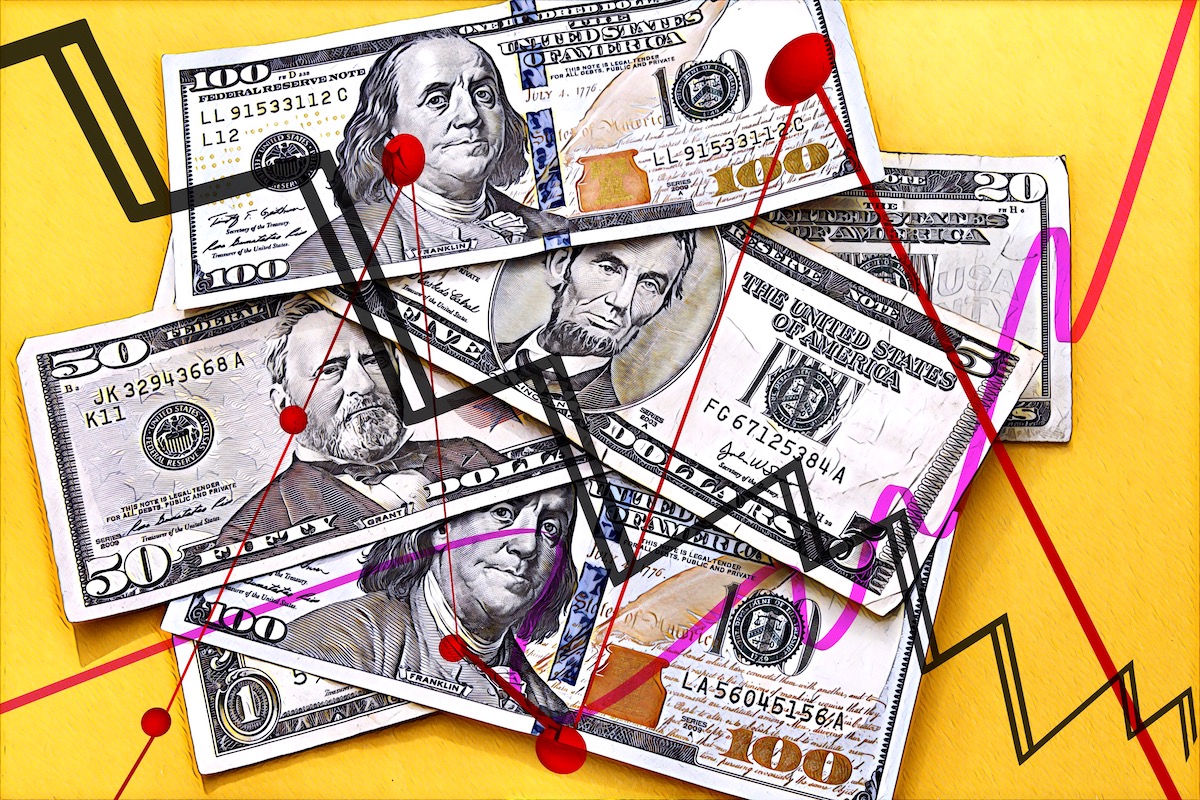3 Good Reasons and 3 Not-So-Good Reasons to Sell a Stock

Your stock is up by 20 percent, maybe even 50 or 100 percent. Should you take the money and run? What about if your stock is down? Should you ride it out and hope for the best, or is it time to take a loss and avoid it getting even worse?
All these questions are running through your mind, and rightly so. You’re in the stock game to make money so making good decisions about when to sell stocks is important. In this story, we’ll run through three reasons to sell and three reasons to ride it out longer.
First Off, Sell Reluctantly
Some investment writers and TV pundits say you should sell at any hint of trouble. They may use a chart pattern, a declining rate of growth or maybe one disappointing quarter as a reason to get out.
Good ideas are hard to find, so stick with them until there’s powerful reasons to sell. Just because a stock is down doesn’t mean it’s out. A panicked move might leave you worse off than simply waiting out a short term problem, like a computer chip shortage or a blocked shipping route because of, let’s say, a global pandemic.
Conversely, a stock jumping over the moon doesn’t necessarily mean it’s time to put in that sell order. A stock can continue to go up well past your original target price. Stocks don’t have a maximum. They have (theoretically) unlimited upside potential.
You put in the time to research a company and maybe even read through its financial statements. Perhaps you’ve used the company’s products and think they’re the bee’s knees. You took the plunge and bought at what you hope will be the right price. Save yourself from more investment decisions than necessary by being very slow to sell.
Stock sales may also trigger tax consequences. Consult with a tax advisor before you sell shares, at least until you are familiar with capital gains tax rules.
3 Good Reasons to Sell
Here are three signals that you should consider selling your shares.
1. You Need the Money
You put aside money for a reason, whether it’s to build a rainy day fund, save toward retirement or maybe that mansion with a view. If your investment portfolio did its job and you have enough money to achieve the original goal you set, sell.
Here’s why: There’s always a risk the market can back off. That could delay or even prevent you from realizing all those hard-won gains.
2. Something About the Stock Changed
If Apple decided to sell apples instead of selling a gazillion iPhones every year, that would be a good reason to sell. You didn’t intend to buy a food stock when you originally bought Apple. It’s possible the company could have an army of employees with untapped gifts for farming, but that’s much less likely than their proven success with whiz bang phones and computers.
The same is true of major mergers and acquisitions. Once a company makes a major acquisition or merges with another company, you own a different stock than before.
Most mergers and acquisitions don’t work out as well as promised, even more so if the newly purchased company is in a different business.
When a profitable company starts losing money, it’s concerning but not automatically a reason to sell. Automotive and other companies that sell big ticket items will see their profits go up and down along with the economy.
If coffee growers have bad harvests, Starbucks’ profits might decline. Those are temporary issues. Don’t be too quick to sell a good stock going through a rough patch. If the company is having trouble selling its products, look for the reasons why that’s the case before deciding to sell.
3. The Stock Didn’t Follow Expectations
If you bought stock thinking the company was going to introduce a hot new product and that product turns out to be a dud, sell. If the company commits a fraud, sell.
Dividend cuts are bad news for income investors. If you bought a company’s stock because it can pay dividends and it’s forced to cut them or even stop paying any at all, it’s broken faith with you. It’s time to enter that sell order.
It’s tough to admit we’re wrong. It’s even worse when we sell and the stock’s price recovers or even goes higher. That will happen. But all you need to do is be more right than wrong. Don’t reevaluate stocks that failed expectations. Sell and move on.
3 Not-So-Good Reasons to Sell
Here are the three reasons you might want to tell your inner trader to hush up, and hold on to that stock.
1. It Feels Good to Take a Stock Market Profit
This goes back to good ideas being hard to find. As much as we love booking a profit and seeing some extra cash, then what will you do next? Spending the profit means you’ll have less money to invest. Your next investment might not turn out as well. If your stock reaches your target price, that’s great! Perhaps it can go up even more.
2. You Have a Hunch
Experienced investors are disciplined and do everything in their power to avoid being swayed by emotion. Human nature makes investing tricky. We hate losing money. We can also get jumpy when we feel as if we’re missing out.
A hunch is usually an impulse, and it’s rare to see a hunch trader make money for an extended time. Work on using rational judgment.
3. Online (or Somewhere Else) Buzz
There are some smart people offering great advice for free on bulletin boards and Reddit, but they are far outnumbered by people who only know how to sound smart. It’s often impossible to tell the difference until the money is lost. How often do you see anyone say “I don’t know” on the internet?
Internet groups are susceptible to what psychologists call “feedback loops.” That’s when enough people share a belief that others join the bandwagon. Their reasoning goes along the lines of, “If that many people believe (something), it must be true.” Then when facts prove otherwise, it becomes a race to the exits and the stock is kicked to the curb.
Consistent Investors are Winning Investors
The list shared here is only a start. Over time, every investor learns their own investment philosophy. Some investors look to buy shares of companies that are priced below what they may be worth. Others focus on companies that are growing rapidly. Those two groups will have different ideas when to sell a stock.
As you continue to invest in the stock market, you’ll develop your own buy and sell signals. One way to make consistent gains is systematic investing, something that people do when they contribute to a retirement account such as a 401(k).
Once you do, it’s important to stay consistent. Markets go through periods (sometimes years) when even the best value stocks will underperform. Other times growth stocks will be in the doghouse.
If you keep changing your strategy, you could find yourself continually on the wrong side. Professionals accept that sometimes the market is with you and other times it’s not. If you’re patient and know how to reduce risks when you can, the odds will be on your side.
Contributor Sam Levine holds Chartered Financial Analyst® and Chartered Market Technician® designations and has written on finance topics since 2003. He is an adjunct professor of finance at Wayne State University in Michigan.
















